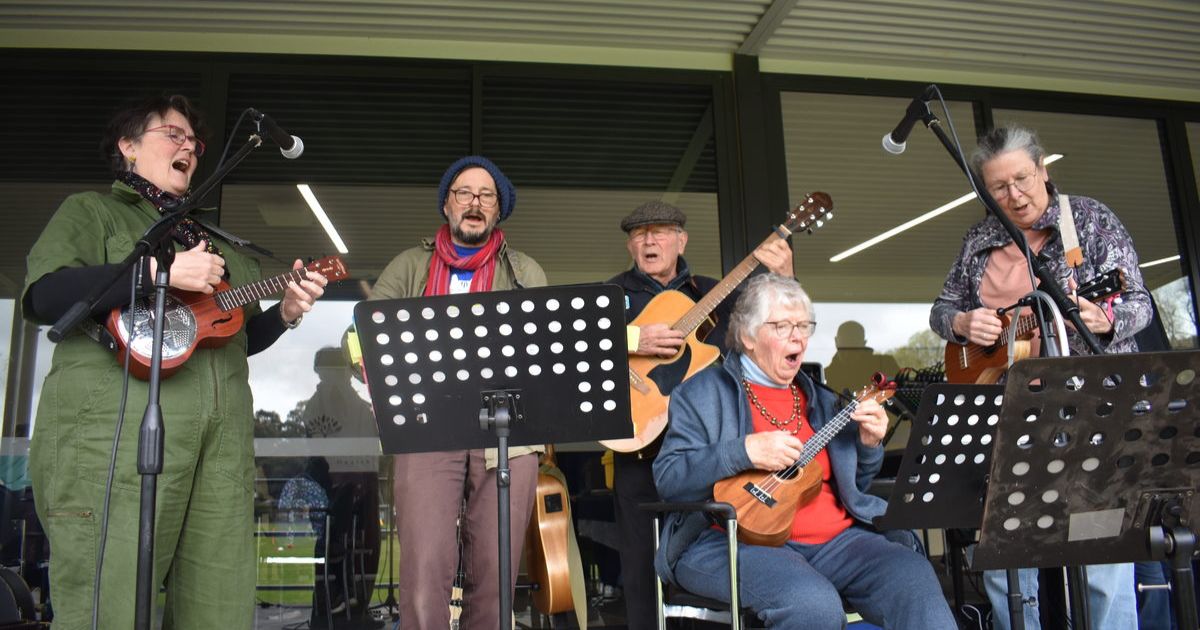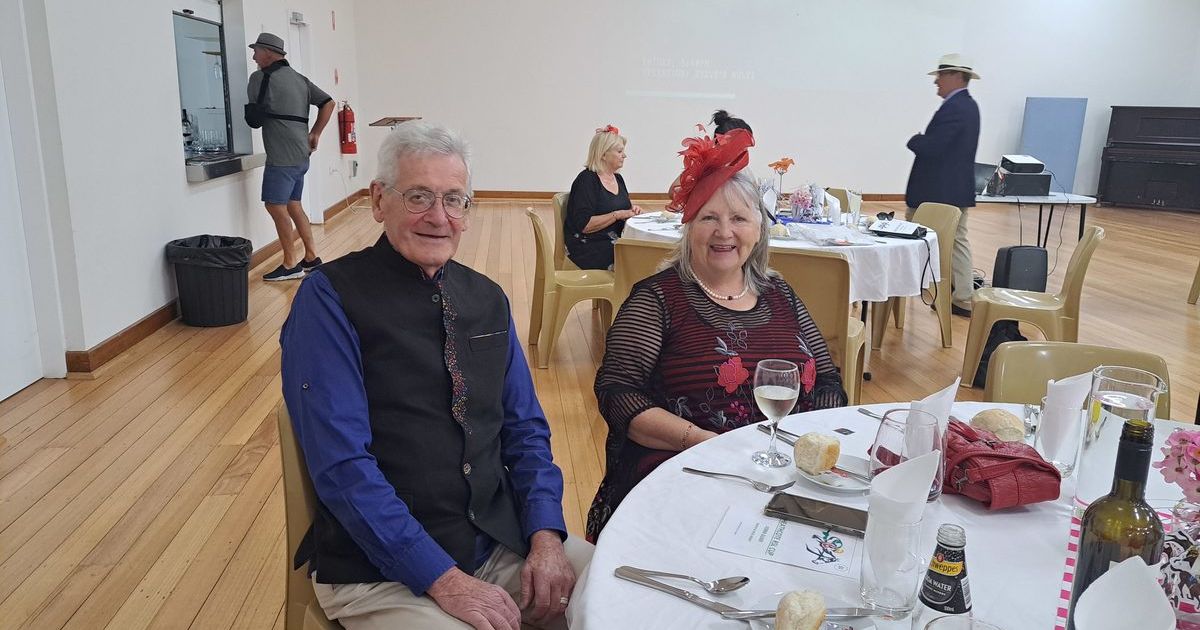Wartime lessons lead to understanding

Celebration: Former prisoner of war Lieutenant Arthur Tranter (left) received a warm welcome at Heathcote Station when he returned after World War Two. Photos: SUPPLIED
When Arthur Tranter left his wife and small daughter in Heathcote in 1941, he had no idea if he would ever see them again.
It would, in fact, be more than four years before they were reunited.
Some of those years were spent as a prisoner of war under the Japanese in northern Sumatra and as forced labour on the Pakenbaroe/Moera Railway.
Conditions on the railway were horrific and it is estimated that more than 80,000 people died during its construction, many of them Asian enforced laborers known as Romushas.
Trapped in this living hell, Arthur wrote an account of his initial escape from Singapore, his subsequent life on the run, and eventual capture by the Japanese.
He also collected folk tales and these, along with his personal story, were put into a book for his daughter Brenda.
He carried it with him from camp-to-camp and into freedom at the end of the war and gave it to her when she was a teenager.
Brenda Tranter has now written, Captured! Living with Death on the Sumatran Railway, to share her father’s experiences with a wider audience.
“It is the story of our little family just prior to, during and just after World War two,” she said.
“It describes a close-knit, pre-war Heathcote in detail, my father’s experiences as a soldier and POW and the life my mother and I led during his absence.
“When my father returned the whole town celebrated.”
On Wednesday, 19 September 1945 the McIvor Times editor’s column spoke of the mix of sorrow and joy as lists of survivors were published.
“The lists of survivors have been anxiously scanned daily for news of Lieut. Arthur E Tranter, who has been a prisoner since the fall of Malaya and there was joy in the hearts of his relatives when it was learned that his name was listed,” it said.
Captured! is drawn from the book Arthur Tranter wrote for his daughter.
“I didn’t put all of his book into my book,” she said. “I was fourteen when he gave it to me, and I think the part I loved best were the folk stories.
“He sought out people who knew local folk stories and I’ve included some of them in my book.”
She said her father’s book was remarkable because, despite his ordeal, it was about all the beautiful and pleasant things he saw.
“I don’t really remember how it felt when he gave me the book, I just remember thinking it was a very precious thing.”
Arthur Tranter was a keen student of other cultures and believed that mutual understanding was the key to long-term peace.
Ms Tranter said he saw the suffering of everyone working on the railway, including the Japanese soldiers and civilians.
“He said If people tolerated one another more then there wouldn’t be wars.”
Captured! Living with Death on the Sumatran Railway is published by Xlibris and is available from Amazon and Barnes & Noble.

















